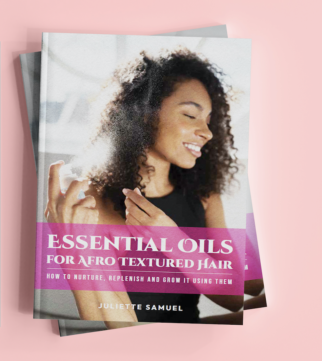Dehydrated skin or dry skin, confused? I certainly was, until I began my studies in the world of skin care. I had to unlearn so much when it came to skin, especially as it applies to skin of color.
Some of you may think that you have dry skin because it feels dry, when in essence your skin could actually be dehydrated. What’s the difference? I was taught that dehydrated skin is skin that lacks water and dry skin is skin that lacks oil. So what do you do?
If you’re challenged with Dehydrated Skin it means that your skin has lost a significant amount of body fluids or they’ve been severely reduced. Dehydrated skin can have an excessive amount of dead skin cell buildup on the surface of your skin.
Typically, dehydrated skin can feel flaky, itchy, tight and sometimes cast a gray shadow on your skin. How do you help dehydrated skin come back to life? Exfoliate. When you gently exfoliate your skin, it’s better able to retain moisture and less likely to become dehydrated.
While exfoliating your skin will help restore life and beauty to it, over exfoliating it can also cause dehydration. Too much caffeine and alcohol, harsh cleansers, along with sun exposure and too little vegetables that are rich in water are also contributing factors to your skins dehydration.
When your skin is dehydrated, replenishing its moisture will be key in treating it. Your water intake, eating water rich foods like watermelon, cucumbers and berries will increase your body fluids. Adding a lotion or cream to your skin while it’s still moist will also help lock in extra moisture.
Dehydrated skin is also referred to as a skin condition. When your skin is challenged by a condition you can often find a solution for treating it.
If you’re challenged with Dry Skin it means your skin is lacking oil. It simply doesn’t produce enough oil. Dry skin doesn’t have whiteheads, blackheads and hardly ever experiences breakouts.
But what dry skin needs is a good moisturizer that will help nourish and replenish your skin layers and add oil to its surfaces. Exfoliation will also help dry skin but what it really needs is proper moisturizing.
Remember …
When working with moisturizers, creams, butters and essential oils for your dry skin, don’t over do it. Too much of a good thing can also cause problems.
Also, I know that I’ve spent a lot of time on dehydrated skin but more often than not this is really the culprit with it come to flaky, itchy gray skin especially in African American skin.
Dedicated To Your Beauty
Juliette Samuel
Esthetician/Author/Publisher




 Facebook
Facebook Twitter
Twitter Delicious
Delicious Digg
Digg Myspace
Myspace StumbleUpon
StumbleUpon Youtube
Youtube